The Best Things to Do in the Imperial City of Hue, Vietnam
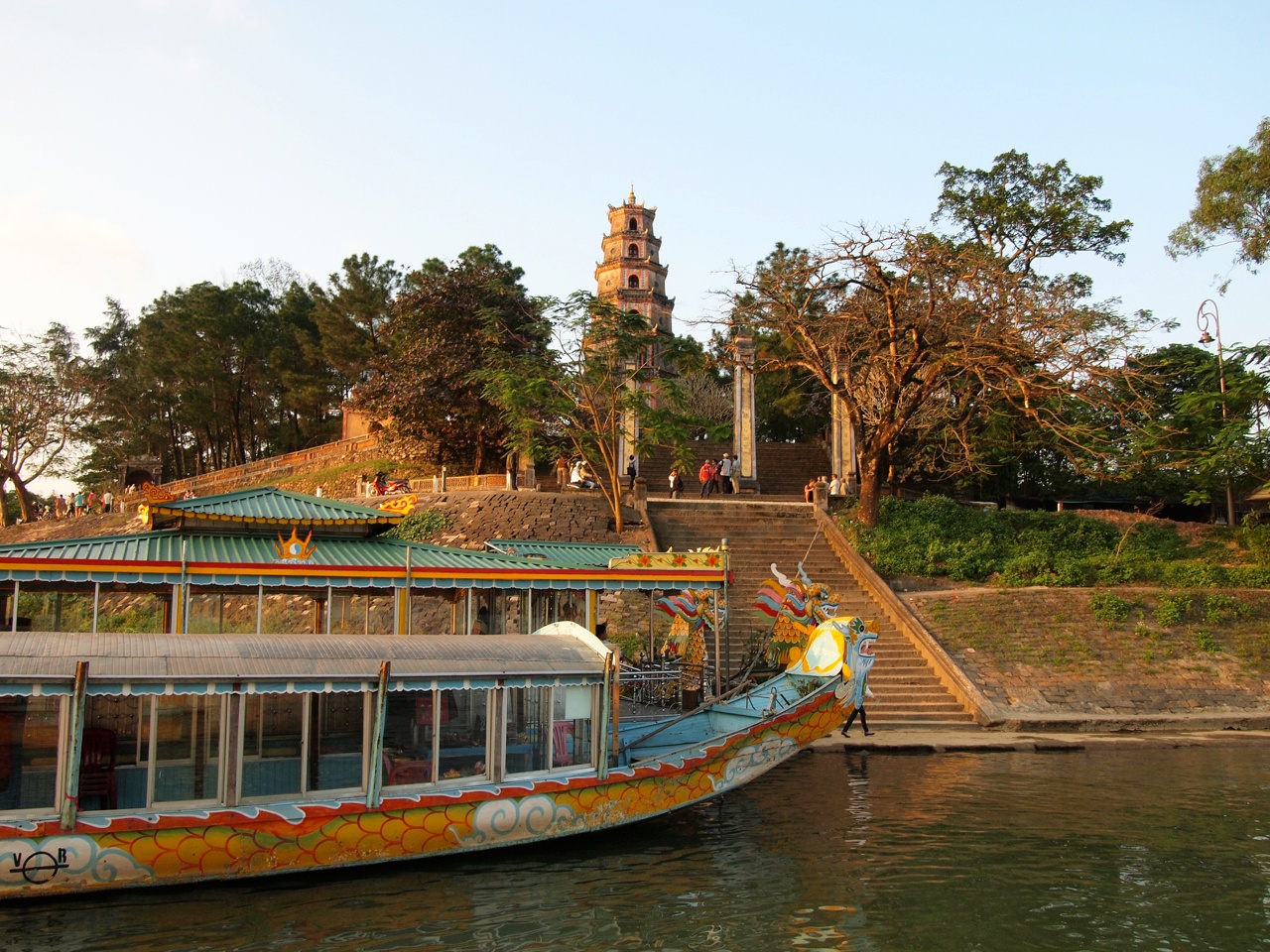
Like many countries in Asia, Vietnam used to be ruled by dynasties of families; by feudal lords and ladies; by emperors with harems and grand palaces.
Chances are you've heard of the Forbidden City in China — a city built just for the Emperor and his entourage. But did you know that Vietnam had a similar city?
From 1802 to 1945, Vietnam was ruled by the Nguyen Dynasty, a powerful family who had its capital in the city of Hue (pronounced “Hwhey“) for more than 100 years. They would become the last ruling family of this sort in Vietnam, since the Emperor abdicated in 1945 in favor of the new communist government being set up in Hanoi under Ho Chi Minh.
But, since the Nguyen Dynasty was based here for so long, Hue is often still referred to as “Vietnam's Imperial City.”
And the things you can do here largely reflect this interesting history.
Check out: Hue City Sightseeing Tour with Perfume River Cruise
1. Visit the Imperial Citadel
This sprawling complex in Hue was where the Emperors of old would have lived and conducted all their business. There was even a part of the citadel known as “The Forbidden Purple City,” which, much like China's Forbidden City, was reserved for only the most important people in Vietnam.
Unfortunately, the Imperial Citadel today is just a shadow of what it once was. The temples, pavilions, walls, and gates were damaged first during skirmishes with the French in 1947, and then most of what was left was destroyed by American forces during the Tet Offensive (a major military campaign during the American-Vietnam War) in 1968.
Today, only a handful of buildings within the citadel still stand; at one point, there would have been more than 160.
The Imperial Citadel is still well worth a visit, though, even if the restoration process has been slow. You can still see some of the imposing city gates and walls, beautifully restored halls (like the one pictured below), and the ancient moat that's fed by the Perfume River.
2. Go to some imperial tombs
Since Hue was an imperial capital for well over a century, many of the former Emperors have elaborate tombs dedicated to them here. Most are located along the Perfume River south of Hue (meaning most survived the war), and you can make a full day of it if tombs are your thing.
Popular tombs to see in Hue include the tombs of Tu Duc, Khai Dinh, and Minh Mang.
I visited to tomb complex of Tu Duc, which was actually built between 1864 and 1867 while the Emperor was still alive. It's a sprawling complex set around a lake that the Emperor basically treated like a summer home. Tu Duc's story is a rather sad one (he died without an heir), so it's worth taking a tour here if you can.
3. Visit Thien Mu Pagoda
Overlooking the Perfume River, the Thien Mu Pagoda with its 7-tiered tower is akin to the “symbol” of the city of Hue. The complex dates all the way back to the early 1600s, though the buildings within it have been burned down and rebuilt several times since then. The current tower dates back to the mid-1800s.
Along with admiring the pagoda, you're also sure to see young monks in training here going about their duties and studies. Visit early in the morning to beat the crowds.
4. Go to a “Royal Banquet” dinner
If it's kitsch you're looking for (and especially if you're traveling in a larger group), book an evening at a royal banquet. You'll dress up like Vietnamese royalty, enjoy traditional music, and dine on traditional “royal” dishes that often come out with intricately-carved garnishes shaped like birds.
This is not something I would usually be into, but since I was traveling with a really great group on my Intrepid Travel tour of Vietnam, it ended up being an incredibly fun evening. (Plus, the food was delicious!)
If you're not traveling with a group and are looking to book one of these, the one at Ancient Hue (one of the better restaurants in the city) comes highly recommended.
5. Take a bike ride through the countryside
Lastly, if you only do one thing in Hue beyond the citadel and tombs, go on a countryside cycling tour. I love bike tours a lot because they give you such a different perspective on a new place – and it was no different in Hue.
The tour I went on had us riding through rice paddies, visiting a countryside market, and having lunch at a local family's home. It was probably my favorite part of my time in Hue because I felt like we were seeing the “real” Vietnam. (Book a similar tour here.)
This of course is not an exhaustive list. You can also take a dragon boat cruise down the Perfume River, or wade through the chaotic central market. You can even book day tours from here to the Demilitarized Zone not far from Hue that marks where the border between North and South Vietnam used to be.
Whatever you do though, don't skip Hue if you're traveling through Vietnam!
KNOW BEFORE YOU GO
Getting there: You can fly to Hue from either Hanoi or Ho Chi Minh City, but I would suggest taking a train instead. You can catch a train from either Hanoi or HCMC – I took an overnight sleeper train from Hanoi, which I think is an essential Vietnam travel experience!
Where to stay: There are plenty of hotel options in Hue. Some worth checking out include the Jade Hotel (budget), the Orchid Hotel (mid-range), and the Saigon Morin Hotel (higher end).
Compare Hue hotel prices here.
Tours to take: If you're interested in seeing some of Hue's highlights in one day with a local guide, check out Urban Adventures' Hue Discovery tour. Or these tours might also be of interest:
- Hue City Sightseeing Tour with Perfume River Cruise
- Afternoon Chuon Lagoon Bike Tour and Boat Ride from Hue
- Royal City Street Food Tour in Historic Hue
Travel insurance: And don't forget to pick up some travel insurance before you go – you never know when you might need it! My go-to is always World Nomads for basic (and really affordable) travel insurance.
Grab a good guidebook before you go, too:
Pin it for later:
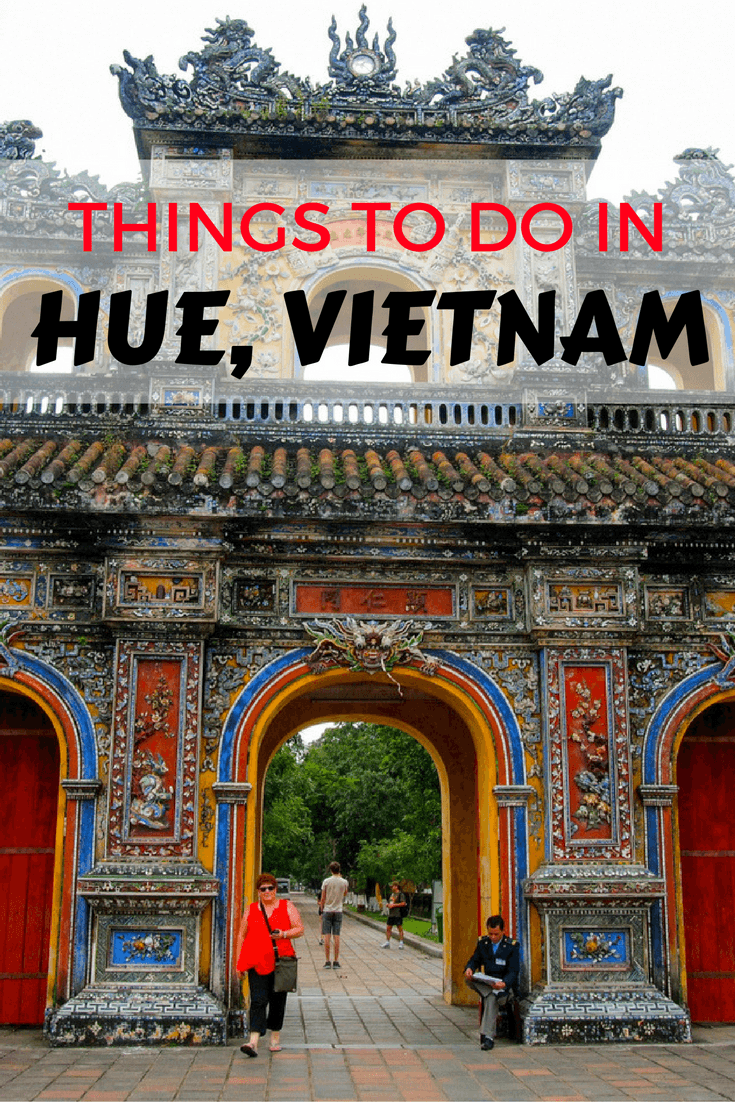
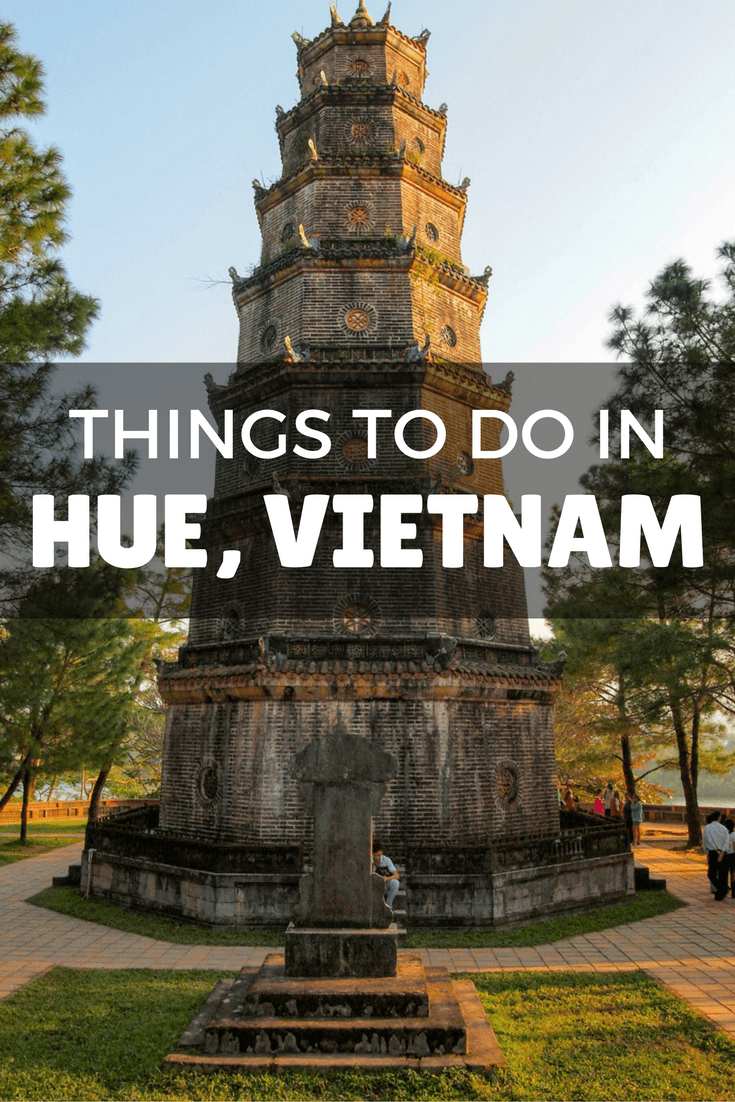
Is Vietnam's “Imperial City” on YOUR travel radar?
*Note: I visited Hue as part of a complimentary tour of Vietnam and Cambodia with Intrepid Travel. As always, though, opinions are completely my own.
If you'd like to book this same tour, check it out here.

Amanda Williams is the award-winning blogger behind A Dangerous Business Travel Blog. She has traveled to more than 60 countries on 6 continents from her home base in Ohio, specializing in experiential and thoughtful travel through the US, Europe, and rest of the world. Amanda only shares tips based on her personal experiences and places she's actually traveled!



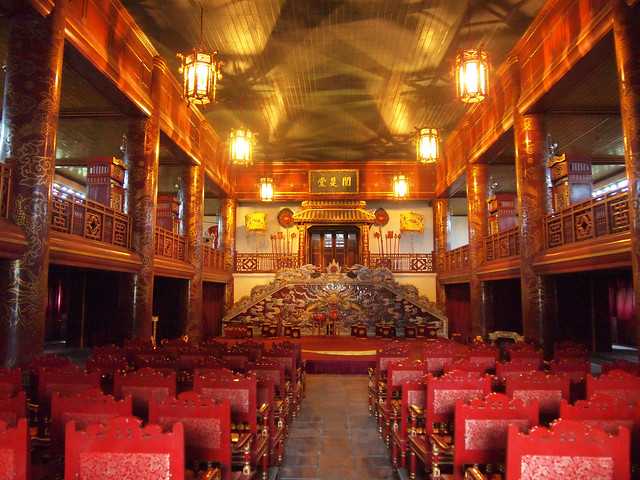
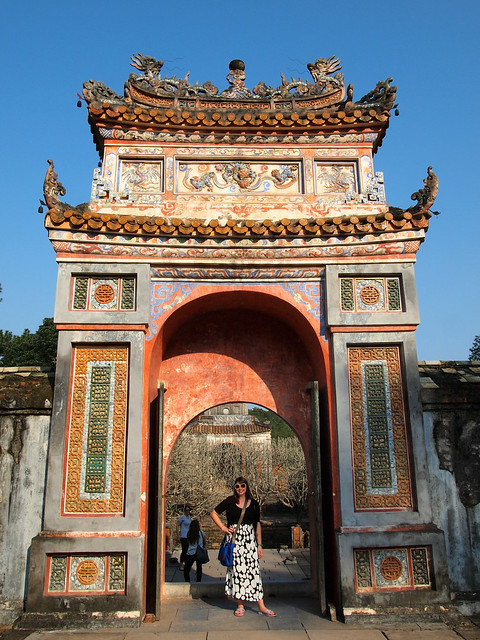


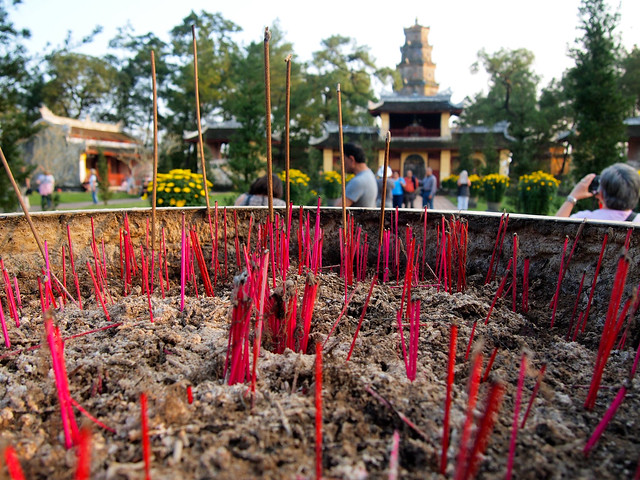
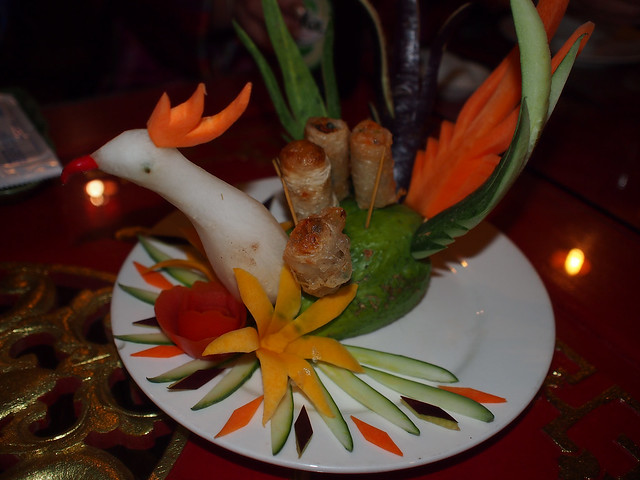
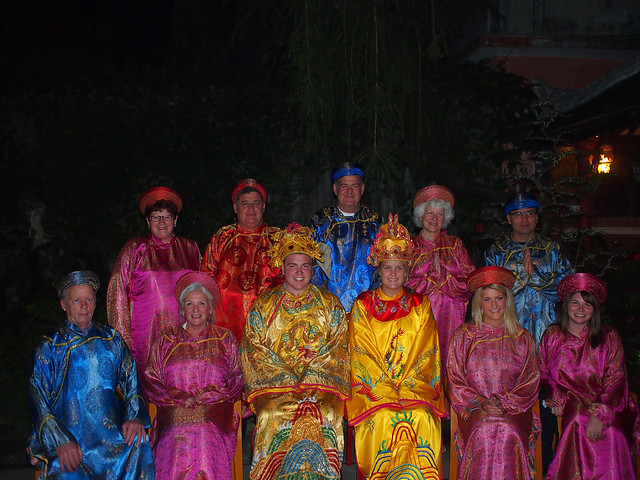
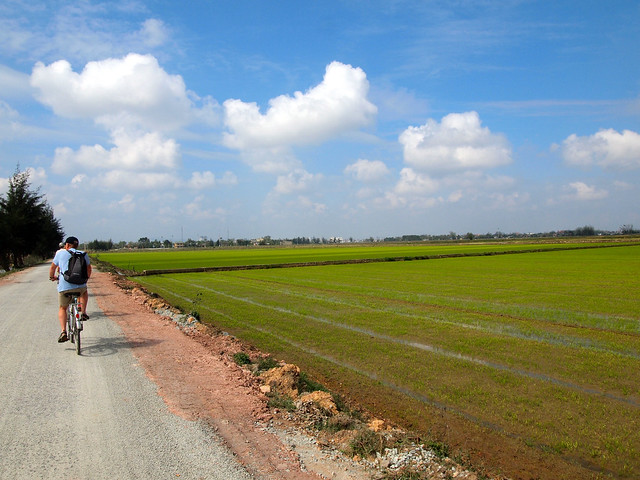
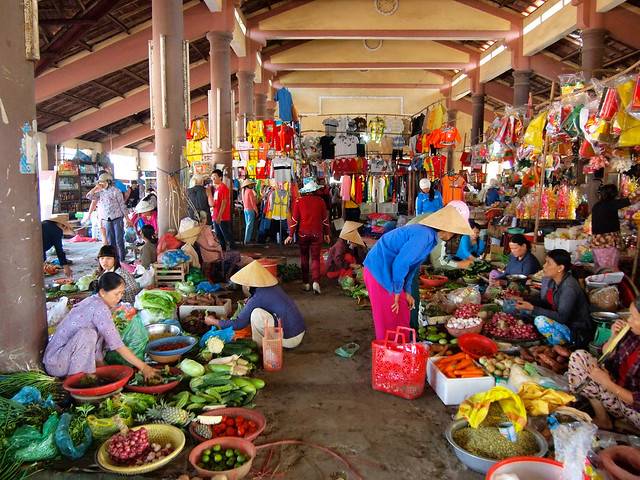
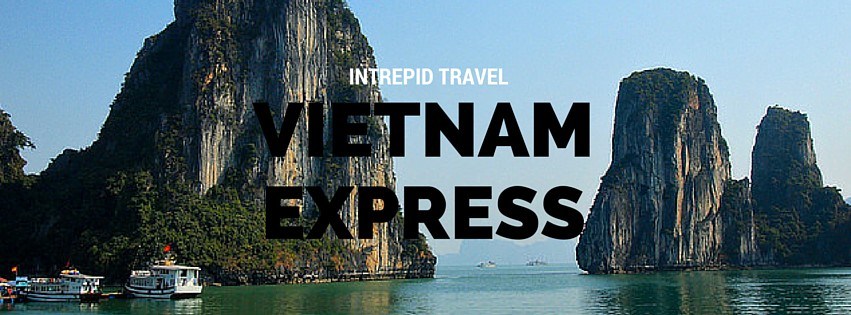









Vietnam is often a touchy subject, especially the important points around the northern Vietnamese flag.
Ok. will do!
I really enjoyed reading this blog on Hue. I am going to Hue this summer and was thinking of staying two days there but after reading your blog, I changed my mind, I will definitely stay longer and shorten my stay in Hoi An. Thanks
Hoi An is great, too, so be sure to allow a couple days there as well!
Great trip! Actually, there a lot of things to do in Hue, only a few days are not enough. Some rustic scenes of Tam Giang Lagoon or the beautiful landscape of Bach Ma National Park… Hue is my mom’s hometown!
Thank you, Amanda. I hear a lot about the peaceful and antiquated of Hue and I planned to go to Hue in May. I wonder if I can purchase the train ticket from Ho Chi Minh to Hue in America? I want to prepare it as best as possible because I and my family haven’t held any vacation since 2016. Tks you.
Anyway, I found another article that is quite useful, too. https://journeyonair.com
Hmm I’m honestly not sure if you can pre-purchase train tickets in the US. You’ll have to see if you can buy them online!
Thank you. I asked some of my friend who got this before and they said I have to be on Vietnam territory to purchase a train ticket
Love it! Can’t wait to visit Hue. Which tour did you go for the bike tour? Thanks!
To be honest, I have no idea! I was on a larger guided tour of Vietnam at the time, and our guide arranged the bike tour for us!
Love it! Some unique experiences in Hue. So have you gone shopping at Dong Ba Market and tried some Hue special cuisines like sweet soups, spring rolls or many types of pancake (bánh ướt, bánh khọt, bánh xèo…) ?
Very interesting. Writing down Vietnam as one of the countries to visit. Thank you for this info. c”,)
[…] Exploring the Imperial City of Hue, Vietnam […]
This is a great post – thanks for sharing your experiences in Hue. We’ve just arrived with our two kids and did a ride around the Imperial city to get the lay of the land. Planning on heading out early tomorrow morning when it opens to avoid the heat and the crowds. A cycling tour sounds fun – I might try to organise it. We’re in Hue for about a week so plenty of time to see and do!
Thanks, Rachael! I hope you guys really enjoy Hue! I feel like not that many bloggers write about it when it comes to Vietnam, but it’s a pretty interesting city!
[…] of his way to make sure that we met people who treated us well. We had lunch with a local family in Hue, where the neighbor kids came over to sing songs for us. We met a local “fortune […]
[…] at a perfect time on my Intrepid Travel tour of Vietnam — after bustling Hanoi and historical Hue, and before more modern Saigon. The fact that it was so… different from the rest of Vietnam […]
Thanks for sharing, will keep this mind when I travel there one day 🙂
Thanks for reading!
Great post! I was in Hue a couple of weeks ago and was only there for 2 days as it was so cold but I really liked Hue and enjoyed exploring the Citidel. I want to go back one day and visit all the places mentioned in this post.
Definitely do a bike ride if you can! That was probably my favorite thing I did in Hue.
Damn, I should have read this article before going to Vietnam, because I did skip Hue! What a shame it looks absolutely beautiful!
Ah, bummer! I’m sure you saw lots of other great places, though – there are so many in Vietnam!
I had to cut Hue out of my Vietnam trip last fall, sigh. Now totally regretting that decision – will have to go back!
Darn, you’ll just have to go back! 😉
Wow! I’m not sure tombing is my thing, although I’m sure they are fascinating. I’d love to explore the surrounding countryside on a bike, and as for donning traditional dress, that sounds like great fun too!
The bike tour was definitely a highlight!
these buildings never fail to impress me. That first photo is amazing!
Thanks! It’s definitely pretty impressive architecture.
This is such a lovely post! I really want to go to Hue, and generally Vietnam. Maybe next year- we’ll see 🙂
PS- Looking good in that costume!
Thanks, Sammi! I almost wasn’t going to write it because I wasn’t sure anyone would be interested in Hue. But now I’m really glad I published it!
I would go just for the dinner, coming out in weird shapes like birds!
Haha it’s amazing what they can turn fruit and vegetables into!!
Looks like a fun place to visit. I will definitely be bookmarking this one in case I travel to SE Asia especially because Vietnam is on the list of countries to visit!
Well stay tuned, because I have lots more Vietnam content on the way!
I haven’t been there seen 1990. I hope things have changed. I see they put a new coat of paint on the gate.
Well, this was my first time there, so I can’t tell you how it compares now to 1990. But my guess is that it has probably changed a lot!
Wow, the city looks so rich and royal! Even the tombs are so colorful.
Agreed! I mean, much of the city is fairly modern and “normal,” but the tombs and citadel definitely have an ancient, regal feel!
I’ve heard a lot about Hue and it’s definitely a city I would want to visit on a trip to Vietnam. I’m so fascinated by Asian history for no other reason than it’s not really taught in detail at all in K-12 schools in the US and college classes sometimes still focus on a region of the continent instead of just one country!
My favorite photo might be of the pagoda. Your pictures and details really reminded me of Gyeongju in South Korea although the imperial tombs there are actually “imperial mounds.”
Yes, I had no clue about most of the history in Hue, so it was really interesting for me to learn all about it.
Lovely photos as always Amanda. I am learning more and more about Vietnam lately through you and a few other bloggers who have been in the region recently. I have always wanted to go there but it was further down on my bucket list. Now after read so many wonderful stories about Vietnam, it is quickly creeping up that list.
Awesome to hear, Jen! Vietnam is one of those places that I think is primed right now for tourism. It’s not a tourist hot spot yet like, say, Thailand, but it can support tourism just fine. I really loved it! Plenty more Vietnam content to come, too!
Excellent! I look forward to reading it.
I love the pictures in this post: they show the heritage of Vietnam and the beauty of this country, aside from the usual conical hat or the limestone cliffs (not that those are bed). I’ll make sure to check the imperial palace if I’m in Vietnam: I’m fascinated by royal dinasties and the like…
If you’re into dynasties and imperial palaces, then Hue would definitely be the place for you!!
I hadn’t heard of Hue before. I’ve actually heard such mixed things about travel to Vietnam but your photos are beautiful and the bike tour sounds nice. Hopefully I’ll make it to Asia someday!
I personally really loved Vietnam! Glad I could introduce you to a place you hadn’t heard of before!
Gorgeous photos! Thanks so much for sharing the Imperial City of Hue. I’d never heard of it before, but we’d really like to go to Vietnam. Quieter, off the beaten track destinations are great when traveling with kids so thanks for introducing us to Hue 🙂
You are very welcome, Gina! I think Hue could be a nice family destination since it’s not nearly as overwhelming as, say, Hanoi or Saigon.
Unlike NZ Muse, Hue was actually one our favorite places to visit in Vietnam, so I’m glad you enjoyed it too! It’s definitely more chill, but I think that if you made an effort to see more than the Citadel, it was really rewarding. So many beautiful temples and tombs, the food is fantastic (even the non-kitschy stuff!), and I think the countryside in the area might be some of the most beautiful in the entire country. We’re back in Vietnam for 3 months, and before we leave, we’re popping up to Hue to spend a few more days!
I think going on the countryside bike tour really helped me love Hue a lot more than I would have if I’d only seen the citadel and some tombs. Glad to hear you liked it, too!
I must admit Hue was probably my least favourite destination in Vietnam (the local Couchsurfers we met there apologised for it being boring, and it kinda is! But that can be nice in its own way, especially say after the craziness of Hoi An – here’s what I wrote about it last year http://nzmuse.com/2013/06/hue-helpful-hustlers-in-a-quiet-town/)
It’s true that it’s much more chilled out than Hanoi or Saigon or even Hoi An. But I kind of liked that about it! Plus, the history nerd in me appreciated visiting the citadel and tombs and all that.
Had not heard of Vietnam’s Imperial City before, but it sounds fascinating! Will definitely be adding it to my list of places to check out when I’m in Vietnam later this year.
Awesome! It’s definitely worth visiting, at least for a couple of days.